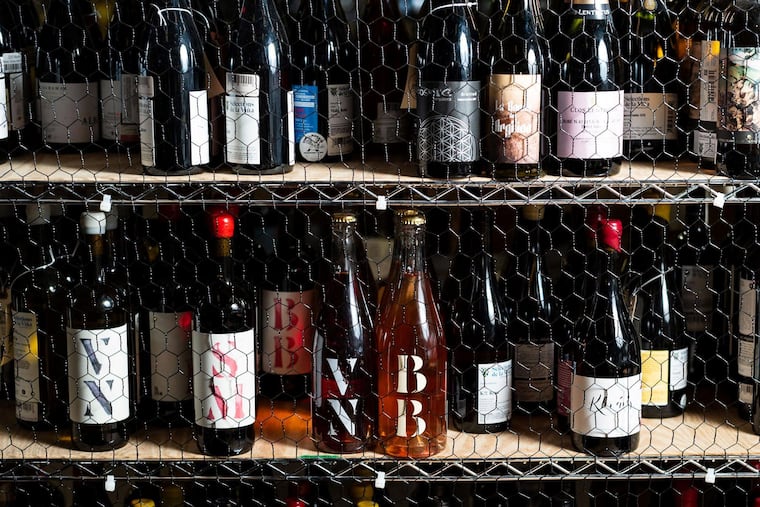Wine dealers sue the PLCB over allegedly illegal shipping restriction
The lawsuit accuses the Pennsylvania Liquor Control Board of violating a 2016 law that liberalized the sale of alcoholic beverages in the state.

Two wine dealers have sued the Pennsylvania Liquor Control Board in Commonwealth Court for emergency relief, alleging that the agency is violating a 2016 law by prohibiting them from shipping wines directly to retailers and restaurants that sell wine for takeout.
Under the PLCB’s current system, the so-called special order wines sold by the plaintiffs, MFW Wine Co. LLC and A6 Wine Co., must first be shipped to a state store, where the restaurateurs and retailers permitted to sell wine must go to pick them up.
But the closure of the state stores last month as part of measures to contain the COVID-19 pandemic also cut off the wine importers and distributors from their market, and their customers from a resupply of wine. Many retailers and others now can’t restock specially selected takeout bottles not sold in the state system, as they could before the pandemic.
Most of the dealers’ customers are not big enough to order the 50-case minimum from the state warehouse.
Wine dealers “have got wine. They’ve got great wine, and I would love to buy it, but we’re not allowed,” Jill Weber, who owns Jet Wine Bar at 1525 South St., said last week, referring to MFW and others.
On Thursday, MFW Wine and A6 Wine, represented by lawyers at Montgomery McCracken Walker & Rhoads LLP, asked the Commonwealth Court for an emergency order to force the liquor control board to “implement a procedure for direct delivery of wine,” as required by the 2016 law that also allowed supermarkets to start selling wine.
The law called for the board to allow MFW, A6, and other companies like them to set up a system that bypassed state stores by June 1, 2017. That August, the PLCB issued an advisory asserting that it had a choice as to whether it would establish the system. “At the present time, the PLCB has not opted to implement a procedure to allow for the direct shipment of special orders,” the advisory said, according to this week’s lawsuit.
A PLCB spokesperson said the agency had not seen the lawsuit and would not comment on litigation.
“Regarding special order, we continue to evaluate and develop plans to support our employees, licensees, suppliers and customers to the best of our abilities in these uncertain times, and we’ll communicate any changes to the current special order restrictions, if and when they are implemented,” said the spokesperson, Elizabeth Brassell.
The “special order" system that is the subject of the lawsuit generated $112.8 million in sales for the PLCB in fiscal 2019. That is just 4.5% of total system sales, but it has grown twice as fast as the system’s overall $2.5 billion in sales in recent years.
Pennsylvanians can still order online from Pennsylvania wineries and from wineries in other states that have a license that allows them to ship to consumers here.
Sovos ShipCompliant, which helps wineries comply with varied state laws around the country, said its clients shipped 198% more wine to Pennsylvania consumers in the last two weeks of March than they did in the same two weeks last year.
In other developments, the PLCB is planning price increases on an unspecified number of products, according to Distilled Spirits Council of the United States and the American Distilled Spirits Alliance.
“In light of the severe disruption in spirits sales caused by the continued closure of all Pennsylvania state stores, we urge you to suspend all scheduled PLCB-initiated price adjustments scheduled to go into effect in August 2020,” the trade groups said in a letter Tuesday to PLCB chairman Tim Holden.
Brassell, the PLCB spokesperson, criticized the trade group for going to the media. “The PLCB has not made any final decisions to increase prices in August,” she said.
“PLCB reached out to suppliers in March to invite their participation in cost negotiations relative to roughly 400 items, out of thousands of products sold by the PLCB,” Brassell said. “These are ongoing discussions between the PLCB and its individual suppliers.”